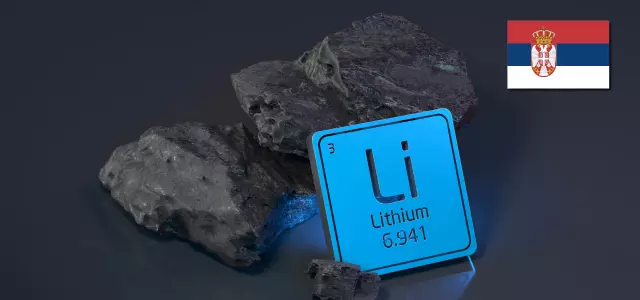
This article originally ran on Forbes.com on August 14, 2024. All rights reserved.
Daniel B. Markind is a Forbes.com energy column contributor. The views expressed in this article are not to be associated with the views of Flaster Greenberg PC.
As much of the world marveled while Serbia's national basketball team almost upset the heavily favored United States at the Paris Olympics, back home in the capital city, Belgrade, a more important national event took place – both for Serbia specifically, and for the development of green energy generally in the rest of Europe. On Sunday, August 11, as many as 30,000 people demonstrated on the streets of Belgrade, against a proposed lithium extraction project that has been proposed for western Serbia by the international energy company, Rio Tinto. (Source).
The lithium mining project, which has the support of Serbia's populist President, Aleksander Vucic, would involve a proposed $2.4 billion extraction in the lush Jadar region of western Serbia that could eventually supply as much as 90% of Europe's total estimated lithium needs. Because lithium, an elemental metal, is a key ingredient in batteries required to store electric energy, it is a key component in any attempt to transition away from fossil fuels to green energy. However, lithium mining itself can be a very dirty process, and environmentalists throughout Serbia have rallied against the project claiming it would trade one kind of environmental damage for another, and causing a two-year delay in the overall project. When Vucic reinstated Rio Tinto's license for the project, environmental groups gave him until August 10 to ban the extraction. After Vucic refused to do so, Serbians took to the streets in large numbers to protest, in Belgrade and in other places throughout the country.
The protests contained an added political element, as Russian officials warned Vucic that they were a mere smokescreen designed to depose him by his political enemies, in a way they said was reminiscent of the 2013 protests that led to the toppling of then Ukrainian President, Viktor Yanukovych. (Source). Protest leaders vehemently denied this, but the state-controlled media launched a huge media campaign against the rally.
Serbia seeks European Union membership, and last month signed an agreement with the EU on "critical raw materials" that would provide the EU with access to Serbia's lithium reserves. This would reduce Europe's dependence on China in fields like electric vehicles and batteries. Meanwhile, Serbia’s Mining and Energy Minister, Dubravka Dedovic Handanovic, noted that Serbia has greater ambitions than just mining lithium, it wishes to develop an internal “value chain” linked to producing batteries and electric vehicles. (Source).
Still, the protests are not without merit. Lithium extraction requires a lot of fresh water and as again noted, can be a very dirty process from the perspective of environmental damage. The Rio Tinto project, in particular poses risks to the lush farming valley where the lithium is located in Western Serbia.
That dilemma underscores the issues involved in all of energy transition. To be successful, any type of energy production requires certain environmental tradeoffs to be made. There is no fully "clean" process for producing energy, even so-called green energy. While in the minds of certain activists we should "just stop oil" and all of our problems will be instantly eliminated, that actually would be the easy part. The harder part is determining how and with what to replace it, and explaining to those whose existing environments may adversely be affected by the required changes how and why it is that they should face the environmental risks and detriments for the benefit of others. Until the world squarely faces these environmental tradeoffs, there is little chance that meaningful energy transition will take place, if we are going to be truly honest with ourselves.

